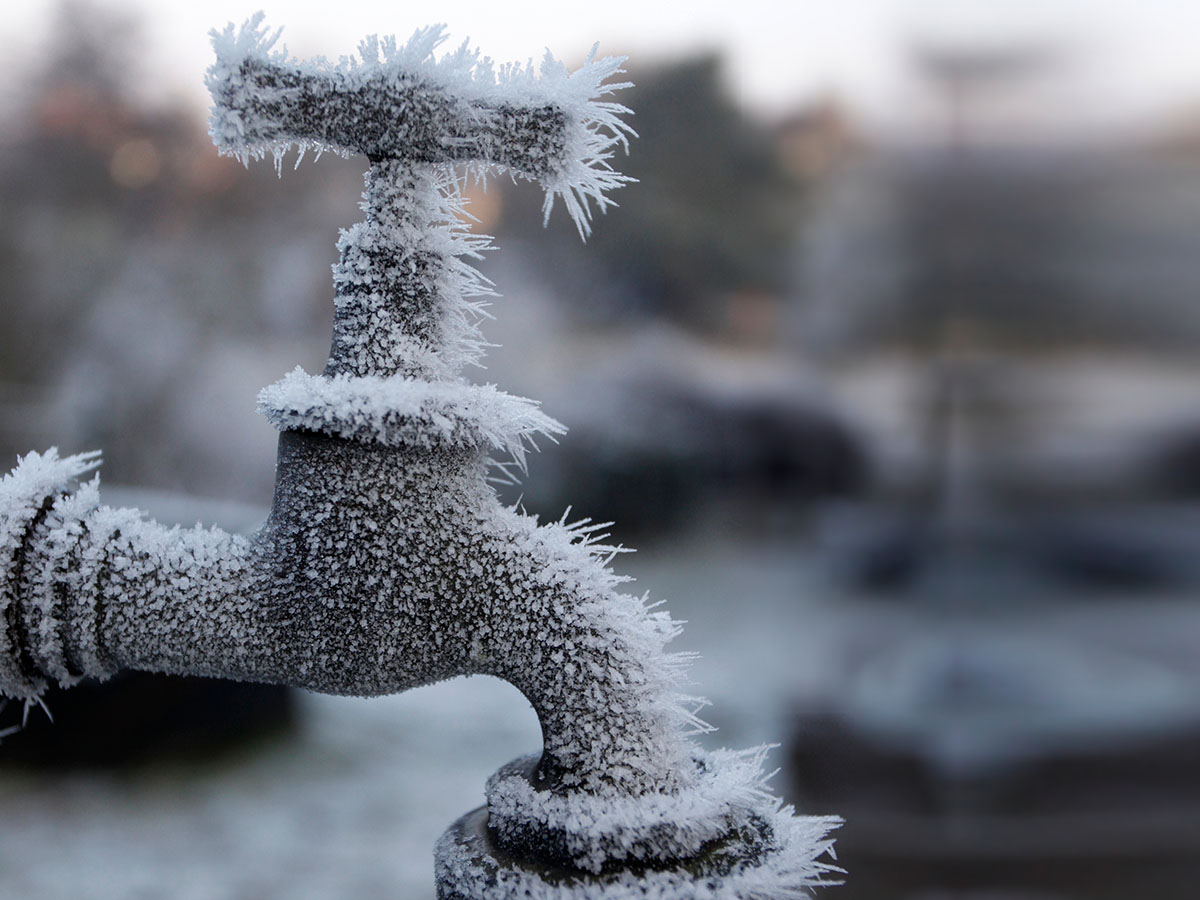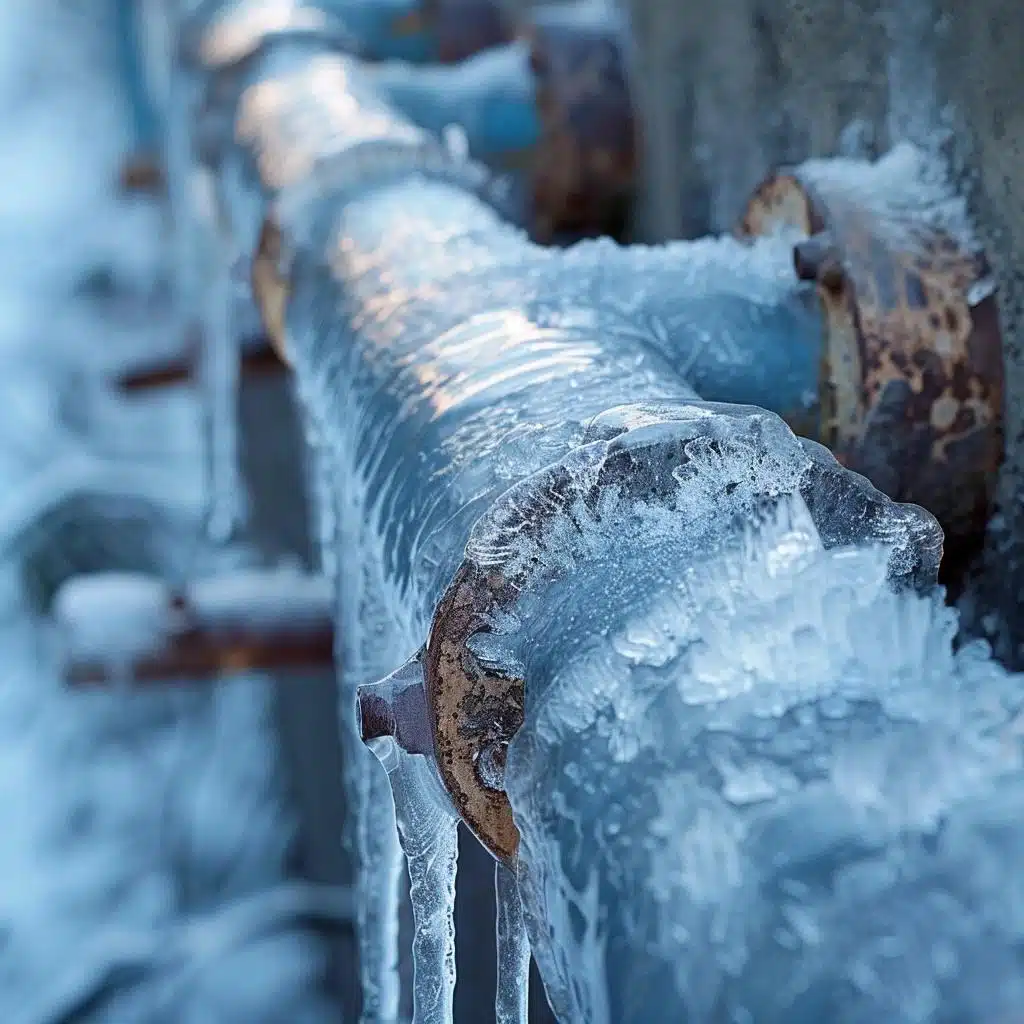Nearly everybody has his or her own piece of advice about 6 Ways to Prevent Frozen Pipes.

Cold weather can ruin your plumbing, particularly by freezing pipelines. Below's exactly how to prevent it from occurring and what to do if it does.
Intro
As temperatures drop, the threat of icy pipelines rises, potentially leading to pricey fixings and water damage. Comprehending how to avoid frozen pipes is critical for home owners in cool environments.
Understanding Frozen Pipelines
What causes pipes to ice up?
Pipes ice up when exposed to temperature levels below 32 ° F (0 ° C) for extended periods. As water inside the pipelines ices up, it broadens, putting pressure on the pipe wall surfaces and possibly triggering them to rupture.
Risks and problems
Icy pipes can result in supply of water disruptions, home damage, and pricey repair services. Burst pipelines can flooding homes and cause considerable architectural damage.
Indicators of Frozen Pipeline
Identifying icy pipes early can avoid them from bursting.
Just how to identify icy pipelines
Try to find reduced water circulation from taps, uncommon smells or sounds from pipes, and visible frost on exposed pipes.
Avoidance Tips
Shielding vulnerable pipes
Cover pipelines in insulation sleeves or make use of heat tape to secure them from freezing temperature levels. Concentrate on pipelines in unheated or exterior areas of the home.
Home heating techniques
Keep indoor areas sufficiently warmed, especially locations with plumbing. Open closet doors to enable cozy air to flow around pipes under sinks.
Protecting Outdoor Pipes
Garden pipes and outside faucets
Detach and drain yard hose pipes prior to winter months. Mount frost-proof faucets or cover outdoor taps with insulated caps.
What to Do If Your Pipelines Freeze
Immediate activities to take
If you think icy pipes, keep faucets open up to alleviate stress as the ice thaws. Make use of a hairdryer or towels taken in hot water to thaw pipes slowly.
Long-Term Solutions
Structural modifications
Think about rerouting pipelines away from exterior walls or unheated areas. Add extra insulation to attics, basements, and crawl spaces.
Updating insulation
Buy high-quality insulation for pipes, attic rooms, and wall surfaces. Appropriate insulation assists preserve consistent temperatures and reduces the threat of icy pipes.
Conclusion
Preventing icy pipelines requires proactive actions and quick responses. By recognizing the reasons, indicators, and preventive measures, homeowners can shield their plumbing throughout cold weather.
Helpful Tips to Prevent Frozen Pipes this Winter
UNDERSTANDING THE BASICS: WHY PIPES FREEZE AND WHY IT’S A PROBLEM
Water freezing inside pipes is common during the winter months, but understanding why pipes freeze, and the potential problems it can cause is crucial in preventing such incidents. This section will delve into the basics of why pipes freeze and the associated problems that may arise.
THE SCIENCE BEHIND FROZEN PIPES
When water reaches freezing temperatures, it undergoes a physical transformation and solidifies into ice. This expansion of water as it freezes is the primary reason pipes can burst. As the water inside the pipe freezes, it expands, creating immense pressure on the walls. If the pressure becomes too great, the pipe can crack or rupture, leading to leaks and water damage.
FACTORS THAT CONTRIBUTE TO PIPE FREEZING
- Low Temperatures: Extremely cold weather, especially below freezing, increases the risk of pipes freezing.
- Uninsulated or Poorly Insulated Pipes: Pipes located in unheated areas, such as basements, crawl spaces, or attics, are more prone to freezing. Insufficient insulation or lack of insulation altogether exacerbates the problem.
- Exterior Wall Exposure: Pipes running along exterior walls are susceptible to freezing as they encounter colder temperatures outside.
- Lack of Heating or Temperature Regulation: Inadequate heating or inconsistent temperature control in your home can contribute to frozen pipes.
PROBLEMS CAUSED BY FROZEN PIPES
WHY CERTAIN PIPES ARE MORE PRONE TO FREEZING
- Pipe Bursting: As mentioned earlier, the expansion of water as it freezes can cause pipes to burst, resulting in significant water damage.
- Water Damage: When pipes burst, it can lead to flooding and water damage to your property, including walls, ceilings, flooring, and personal belongings.
- Structural Damage: Prolonged exposure to water from burst pipes can compromise the structural integrity of your home, leading to costly repairs.
- Mold and Mildew Growth: Excess moisture from water damage can create a favorable environment for mold and mildew growth, posing health risks to occupants.
- Disrupted Water Supply: Frozen pipes can also result in a complete or partial loss of water supply until the issue is resolved.
https://busybusy.com/blog/helpful-tips-to-prevent-frozen-pipes-this-winter/
- Location: Pipes located in unheated or poorly insulated areas, such as basements, crawl spaces, attics, or exterior walls, are at higher risk of freezing.
- Exterior Pipes: Outdoor pipes, such as those used for irrigation or exposed plumbing, are particularly vulnerable to freezing as they are directly exposed to the elements.
- Supply Lines: Pipes that carry water from the main water supply into your home, including the main water line, are critical to protect as freezing in these lines can affect your entire plumbing system.
- Underground Pipes: Pipes buried underground, such as those connected to sprinkler systems or outdoor faucets, can be susceptible to freezing if not properly insulated.

Do you appreciate reading about Helpful Tips to Prevent Frozen Pipes this Winter? Leave a comment down the page. We will be pleased to listen to your thoughts about this post. In hopes that you visit us again in the near future. Are you aware of somebody else who is intrigued by the subject? Do not hesitate to promote it. I thank you for reading our article about Preventing and dealing with frozen pipes.
Estimate Free
Comments on “Avoiding Frozen Pipes in Winter: Key Strategies”